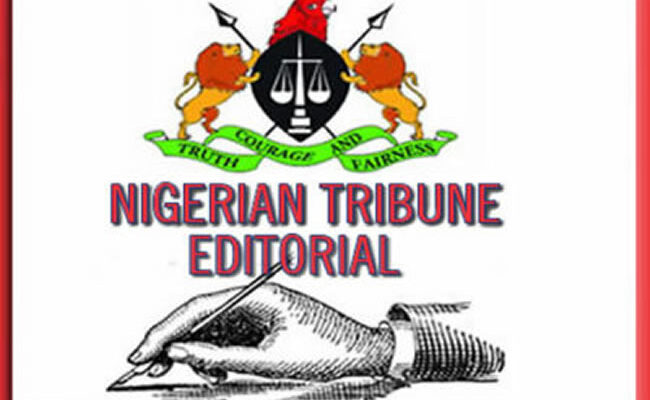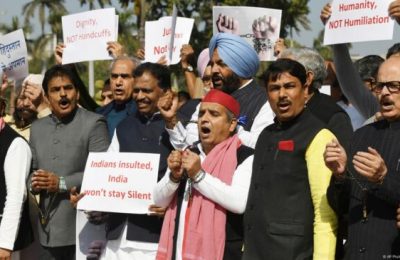
IF President Bola Tinubu needed any prodding on the direction to take to fundamentally address the ills that plague Nigeria, it was provided by eminent Nigerians, including former Secretary-General of the Commonwealth, Chief Emeka Anyaoku; presidential candidate of the Labour Party (LP) in the 2023 general election, Peter Obi; General Ike Nwachukwu (rtd) ; renowned academic, Professor Anthony Kila and former Minister of Education, Dr. Obiageli Ezekwesili, last week. Taking a holistic look at the Nigerian federation, the leaders of thought called for a new constitution for Nigeria which would accommodate the country’s diversity, maintaining that the drafting of the new document must be given urgent attention. They made this call while speaking at a colloquium on June 12, themed: “Securing the future of Nigeria through a new democratic people’s constitution,” which took place in Alausa, Ikeja, Lagos. According to them, the Nigerian project is not working because the country operates a constitution that does not suit its numerous challenges. Speaking at the event, Chief Anyaoku, who was chairman on the occasion, noted that Nigeria from the onset had been facing the challenges of managing its diversity, but quickly recalled that the 1960 and 1963 constitutions were drafted to address the challenges until the military came in January 1966 and halted the democratic course.
Charging the National Assembly to put a legal framework in place for the birth of a new constitution that would be determined by the Nigerian people, Anyaoku said: “If eminent Nigerians; people who have used better part of their time serving this country have a conversation and we cannot take it forward and make sure that we have a complete solution, then we are wasting our time. Given the number of people that are here, we should make this conversation very effective. Many speakers have said that it is not the National Assembly that will make those amendments and it makes a lot of logical sense. It is for the National Assembly to constitute a law where people will come together and make those amendments themselves.” On his part, Nwachukwu harped on a completely new federal constitution that would give autonomy to the federating units (states or zones) as created and agreed. This new constitution, he said, must be subject to a referendum, adding that anything else would further estrange citizens and deepen the pains Nigerians currently endure. His words: “We are in a need of a constitution that provides access to the mineral and human resources domiciled in the federating units with taxes paid to the central government; supports development in all spheres of human endeavours (education, science and technology, health and others); provides security of life and property” and “promotes trust among its citizens.”

Also speaking on the occasion, Professor Kila said the present democratic dispensation had attempted to produce a constitution to accommodate the wishes and aspirations of the people but had not succeeded. Kila said the reason for the failures was that those in authority at those times tried to force the citizenry to conform to their own personal ethos rather than those of the people, who genuinely desired a better and more effective polity. He added that the 2014 National Conference attached a draft new constitution for a balanced and workable Nigeria. He said: “It firmly placed sovereignty and power in the people, with all citizens equal subjects under the law. It made government and its officials accountable to the people. And it unequivocally granted autonomy to states (the federating units) for them to deal with matters concerning their local communities, including policing and security.”
That Nigeria requires a fundamental restructuring of its governmental system and structures is not in doubt. From proper decentralisation of governance and the security architecture to the reform of the leadership recruitment process, especially the electoral system, Nigeria requires a surgical, methodical operation to realise its latent potential. These are the kinds of things President Tinubu should focus on while not shying away from addressing the infrastructure deficit that the country is grappling with, the haemorrhage of businesses and exit of multinational companies from the country owing to unfavourable government policies, and the widespread insecurity and immiseration of the vast majority of Nigerians. At the moment, he seems to be distracted by trivial things such as a new national anthem and tenure elongation for the president and governors. If the case is made that he is actually not distracted, then the inescapable conclusion would be that he couldn’t be bothered to care about the ills that plague Nigeria. If, for instance, the president, working with the National Assembly, had given the kind of attention devoted to the roll-out of a new national anthem to things that fundamentally affect the lives of ordinary Nigerians, the country would have made significant progress by now.
In case the president missed the memo, Nigeria needs a new, pro-people constitution, state police, fiscal federalism, and a sustained war against poverty and hunger. There is nothing cheery about Nigeria remaining the global capital of poverty, out-of-school children, worst electricity access and, not surprisingly, open defecation. Along with addressing the horrendous conditions in which Nigerians remain trapped despite the empty rhetoric of those in government, President Tinubu, working with the 36 state governors and the National Assembly, must ensure the restructuring of the country. As presently constituted, the centre is too powerful and has taken over most of the natural responsibilities of the states. While a very strong centre is not necessarily unheard of in federations around the world, the fact is that Nigeria had what could be regarded as a model in the First Republic when the Western, Eastern and Northern regions developed at their own paces. Nigeria was not conceived, and really cannot work, as an overcentralised entity. That is why a new constitution, taking advantage of the report of the 2014 National Conference, is crucial to advancing the Nigerian cause.
There is pervasive hunger and agony in the land. President Tinubu should lead the charge for real change in the lives of Nigerians. It is a herculean task, but it is not impossible. President Tinubu should act with the same vigour he displayed in giving Nigerians a new, though needless, anthem.
Read Also: NNPC, TotalEnergies to invest $550 million in gas projects in Nigeria — Report








